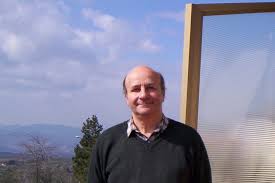14 January 2025
In the city of Kurt Gödel, Ludwig Wittgenstein, and the Vienna Circle, mathematical logic and its application to the sciences have a long and rich tradition.
The Vienna Center for Logic and Algorithms at Vienna University of Technology (VCLA at TU Wien) represents six research groups building on the aforementioned work in a wide range of disciplines, including computer science, mathematics, artificial intelligence, philosophy, linguistics, and many more.
We are pleased to announce that the World Logic Day Lecture 2025 will be held online by Joao Marques Silva (ICREA and University of Lleida). Details will be added soon!

Ambassadors of logic
The following renowned scientists have provided us with short statements on the rationale for the celebration of World Logic Day.

Wit and whim are their start
Both call on thee to open thy heart
And once entwined, unable to part

All you need is logic
All you need is logic
All you need is logic, logic
Logic is all you need!








Vienna Logic Day Lecture

The Vienna World Logic Day Lecture at VCLA is a free online event which offers the possibility to participate from all over the world.
The speaker of the 3rd Vienna Logic Day Lecture 2023 was:
Prof. Dov Gabbay
(King’s College, London)
Title: Logic and argumentation for the 21st century
Abstract
The reasoning patterns and technological advances in the 21st century used in artificial intelligence, social media, and political behavior present a challenge to current applied logic and argumentation.
The old logic has to adapt, evolve, or die.
This lecture will show (through a case study) how to adapt intuitionistic and classical logics to an algorithmic version capable of handling reasoning failures, fallacies, bias, alternative truth, and other problems.We shall use a combination of technical tools developed in the past 40 years.
Spread the logic
Social media constitute an important medium for disseminating information. We are not collecting statistics on the shared content, and are working with GDPR compliant plugins which do not follow you around the world wide web. Thus sharing this content on social media or in private communication is encouraged.
What social media need is more scientists –
not celebrity influencers. – S.Mojad in Science, Sep 2017














